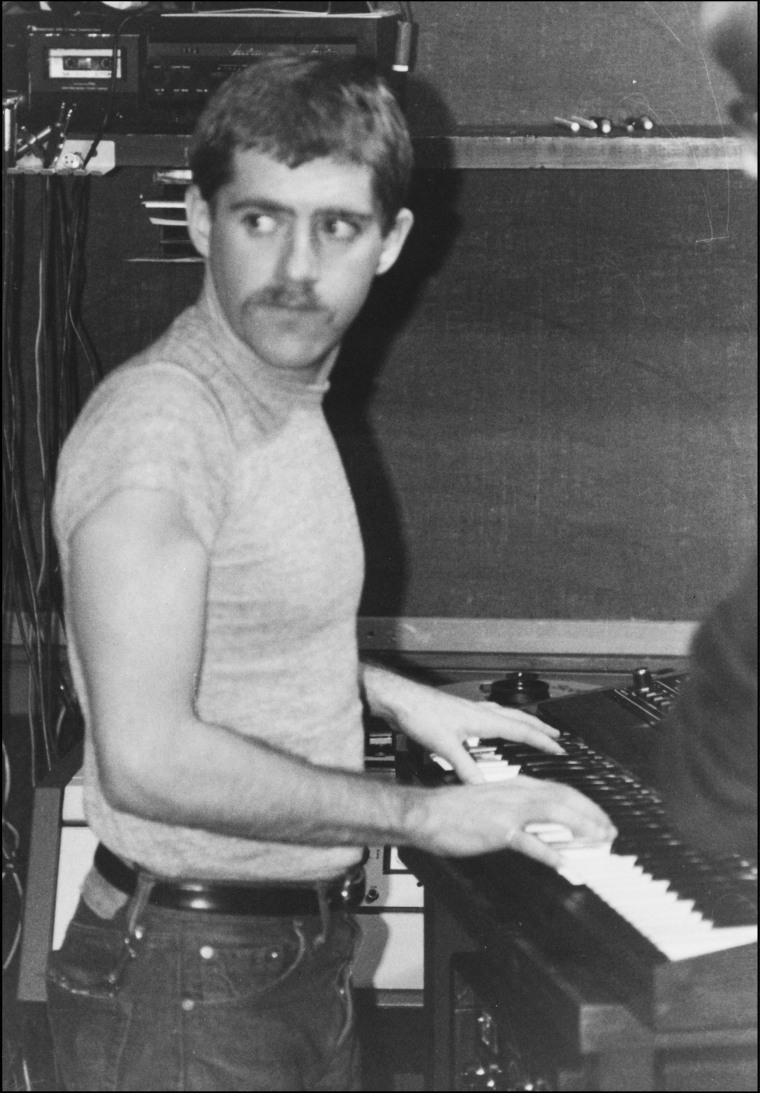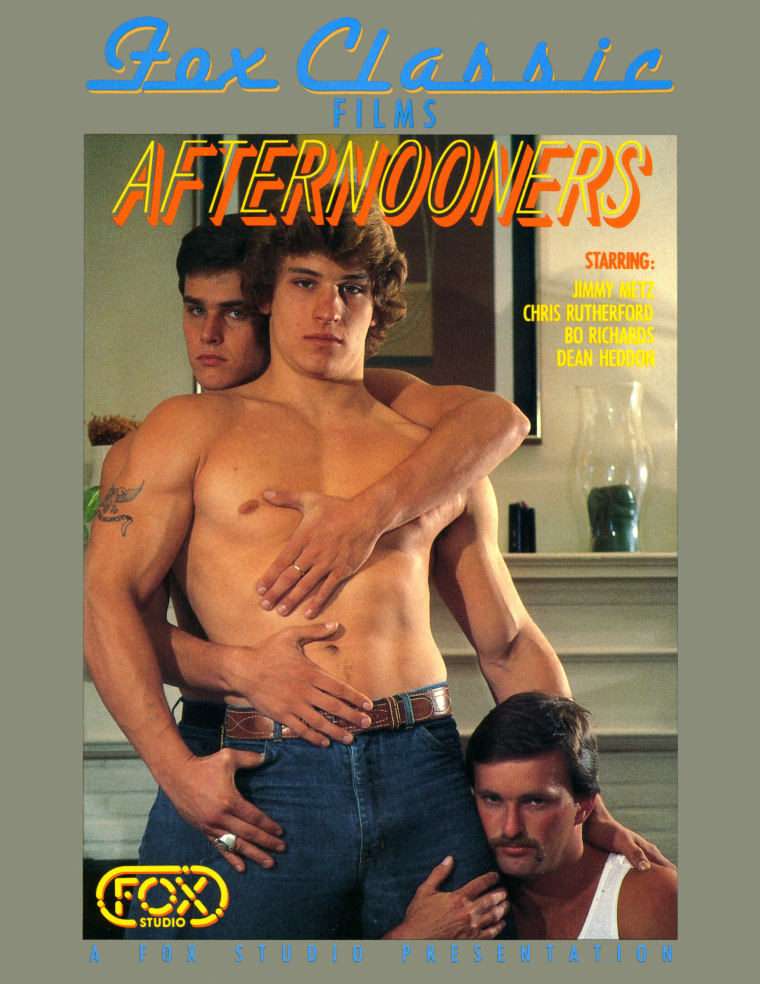Patrick Cowley’s Gay Porno Muzak Was Way Ahead Of Its Time
In a new essay, Drew Daniel of Matmos reflects on the electronic music pioneer’s legacy.
 Patrick Cowley
courtesy of Dark Entries
Patrick Cowley
courtesy of Dark Entries
Next month, Dark Entries and Honey Soundsystem Records will release Afternooners, a compilation of remastered instrumentals by the somehow-still-underrated electronic music innovator Patrick Cowley, who sadly died in 1982 at the age of 32. The new anthology is the third and final in a series of records compiling Cowley's gay porn soundtrack work, following School Daze and Muscle Up. The vinyl comes out on October 19, which would have been Cowley's 67th birthday. It's another great tribute to a composer who was "always titled toward the future," as Drew Daniel from electronic duo Matmos explains in a thoughtful new essay that accompanies the physical album. Today, The FADER is sharing Daniel's full essay, as well as an Afternooners highlight called "Surfside Sex." Read and listen below.
DREW DANIEL: Anthology means “flower collection:” “anthos” takes its root from the Greek word for flower, and “logia” comes from the verb “legein” (to gather). Taking moments of vibrant, youthful freshness and gathering them into an assemblage, it is the premise of any anthology — of poems, of pornography, of music — that the compiler can crop and select passing moments of exuberant expression, and make them portable, while still preserving the vitality at their core. It’s a dialectical process that Fox Studio faced at a precise flashpoint of technological change when they compiled Afternooners, an anthology which gathered silent 16mm film loops and re-presented them as a VHS tape, a compact new format oriented towards private consumption whose market dominance doomed the casually promiscuous social era of the local porn theater. A key component of that process of assemblage and re-distribution was the commissioning of a soundtrack that would massage these distinct loops into a more seamlessly propulsive and united experience. Fox Studio needed something that would keep people fascinated, entranced. Happily, Fox maestro John Coletti knew the perfect man for the job: Patrick Cowley.
They had worked together before on the scoring of School Daze and Muscle Up, (previously compiled by Dark Entries and Honey Soundsystem, and released to critical acclaim in 2013 and 2016). In a taped interview Coletti confessed that as he transferred the reels to filmstrip, he made edits and altered tempo on the fly, acknowledging that “I did things to his music; if he would have done it he would looped it and made it seamlessly beautiful.” This reissue corrects those formal distortions and slips of the splice block and presents Cowley’s work as it was originally crafted. Supplementing the prior anthologies School Daze and Muscle Up, the music collected on Afternooners captures Patrick Cowley’s vitality and momentum in mid-air, as he built upon the successes of his production work with Sylvester, and struggled with his own ambitions to become a star in his own right, while remaining connected to the gay underground from which he first emerged.
Porn music is functional music, meant to accompany action without upstaging what is onscreen, ramping and building towards release while subtly whispering that there’s always more to come. In the hands of some producers, this functionality can lead to rote, hackneyed exercises in genre pastiche, phoned-in stabs at broad stylistic gestures swathed in aimless solo-ing. In Patrick Cowley’s hands, the framework of porn production became not just a sketch pad but a launch pad, a base from which to leap, stretch and explore. Revealing a world of variety beneath a surface of monotonous pounding, Afternooners sets an idiosyncratic course across a wild range of genres, tempos, and positions. When the relentless forward drive of “Surfside Sex” crossfades into the syncopated claps and tom rolls of “Hot Beach,” the result sounds like new wave slowed down and loved up, the dour dry ice of then-reigning bedsit miserabilism replaced by brilliant California sunshine with an “if it rises, ride it” attitude. By contrast, “The Runner’s” almost ominous beginning telegraphs the shadows of risk and suspense implicit in the wordless, casual pickup that it accompanies in the film: a naked man offers himself to a passing stranger running by, signaling him with only a knowing look and a fast nod of the head through an open window. Though the sex that follows is indoors and steamy, there’s something of the sea gulls and grey Bay Area fog in the synthesizer chemtrails that Cowley conjures.
Other songs are more upfront. Though it’s considerably less tender in its implications, “Furlough”’s low-slung funk groove bears more than a passing resemblance to Michael Jackson’s “P.Y.T.” But Cowley throws in a surprisingly metallic curveball in the form of a wonderfully catchy bridge dripping with flange effects. While in general one cannot say that Coletti’s editing of Afternooners was terribly strict about pairing music with image, it can hardly be accidental that the first really explosive orgasm achieved during anal sex is synched to the flourishes that peak midway in “Furlough.” If Cowley’s shameless deployment of cowbell risks collapsing “Leather Bound” into a kind of parody of what people expect from gay porno muzak, the unexpectedly tangy cascades of synthesized Chinoiserie that follow pass through kitsch and into some delirious hall of mirrors that lies beyond. Dropping the tempo without grinding the gears, “Bore & Stroke” adds copious amounts of echo to the mix, upping the weirdly pastoral and playful feeling of an intergalactic bordello. The occasional scything of belly-dancer zills across the mix on an offbeat prompts the unprovable speculation that maybe, just maybe, Art of Noise might have staggered into a screening of Afternooners at some point before writing “Moments in Love.” The double-time rave up conclusion might seem unexpected to home listeners, but onscreen it soundtracks the climax of a sweaty three way and the transition into the next scene.

“In Patrick Cowley’s hands, the framework of porn production became not just a sketch pad but a launch pad, a base from which to leap, stretch and explore.”
Dark Entries and Honey Soundsystem have thoughtfully rounded out their flower basket of film music with three contemporaneous bonus tracks that take up side four. Harvested from private tapes that Cowley was sending to his close friend Lily during the approximate time that he was working for Fox, these are not dustbin throwaways but floor-ready jams. Freed of the “afternoon” conceit, Cowley’s night flowers bloom. When the bird calls have subsided, the stripped down breakdown three and a half minutes into “Jungle Orchids” lets the synth gurgles percolate into something almost fluorescent. The trick repeats four and a half minutes into “Take A Little Trip:” just when the track starts to come on, and the action heats up, a fuzzy bass guitar doubles the synth riff in the sixth minute, and Cowley’s overlap with the border zones of prog rock and funk becomes apparent. With homely tambourines that shimmer over a proto-Kraftwerkian melodic topline, “Love Come Set Me Free” functions as a benediction as the credits roll, revealing an open-hearted romanticism quite at odds with the robotic trappings of the sequencer-driven “San Francisco Sound” that Cowley made famous.
Afternooners entered history and was changed along the way: a later edition of the film attaches a fast-paced scene from the Eighties complete with bleached blonde tips, acid wash jeans and grey “high tech” apartment décor (including a Sharper Image plasma orb). As the utopian cruising of the Seventies turned towards the doomed panic and activist rage of the Reagan era, the spectacle of condomless sex phase-shifted from a token of carefree exuberance to an entirely unwitting disease vector. The public health disaster of AIDS would devastate a generation of gay men, taking Patrick Cowley’s life, along with countless others. This cruel and arbitrary endpoint concluded the momentum of someone always tilted towards the future, who was crafted forward-thinking music to the end. As he noted in a letter to Lily from 1980: “I will not give in to despair or cynicism.” Those words resound in the wake of his departure for other worlds, and help us to hear the meaning of this music as it crystallizes passing moments of joy. Thanks to this gathering of flowers from another time, the pleasure of Patrick Cowley’s music remains open to us all.
